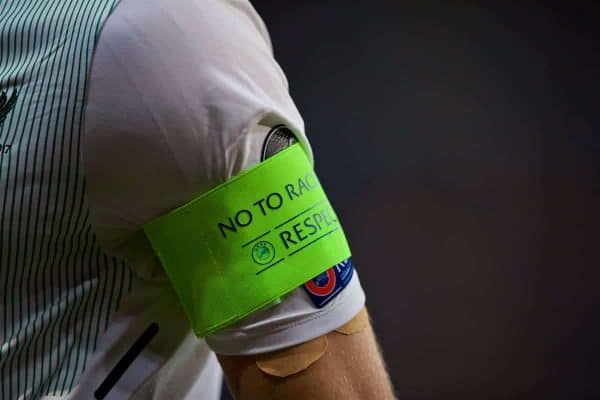People who post racist abuse online could be banned from attending football matches in England and Wales for up to 10 years.
Home Secretary Priti Patel is reportedly bringing forward legislation so football banning orders, which can be imposed on those convicted of violence, disorder and racist or homophobic chanting, can be expanded to include online hate offences.
Sky Sports quoted Patel as saying: “Racism is unacceptable and for too long football has been marred by this shameful prejudice. Those responsible for racist abuse online must be punished. The changes to the law I’m announcing will make sure they are banned from attending football matches.”
Sky and the Daily Telegraph reported the new law was likely to take the form of an amendment to the Police, Crime, Sentencing and Courts Bill early in the new year.
It comes after Boris Johnson in July said the Government would change the orders to cover online racism.
He condemned the racist abuse directed at some England players following the team’s defeat in the Euro 2020 final.
But he rejected a call by Labour leader Sir Keir Starmer to condemn Patel for dismissing the team’s actions in taking the knee at the start of matches as “gesture politics”.
Football banning orders are handed out when someone is convicted of a “relevant offence” linked to a match, including crimes such as disorderly behaviour, making threats against people or property, and possession of weapons or alcohol.
The list also covers crimes set out under the Football (Offences) Act 1991, which include racist chanting, pitch invasion and throwing missiles.
The duration of a banning order, which is used to bar individuals from attending matches and in some cases can require them to surrender their passports ahead of overseas fixtures, can range from a minimum of three years up to a maximum of 10 years.


















Fan Comments